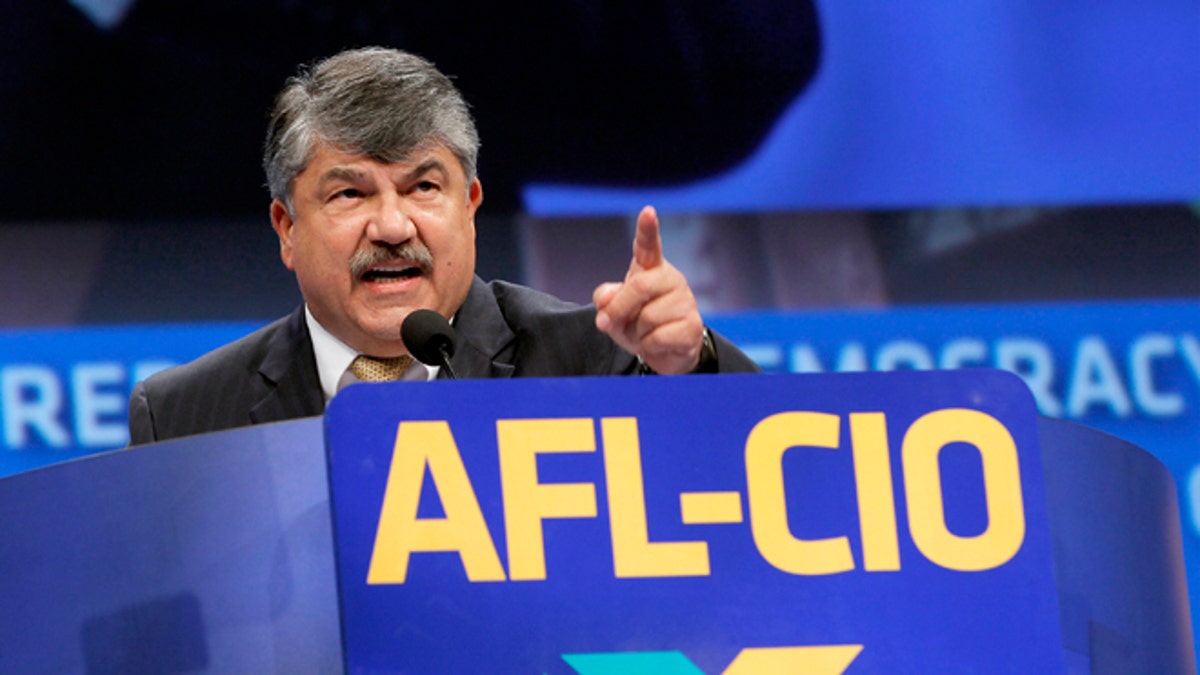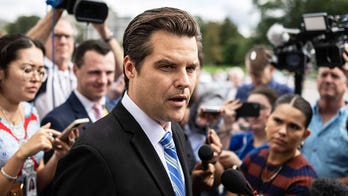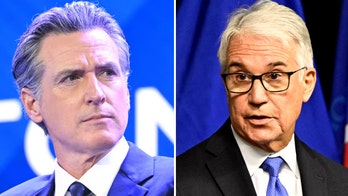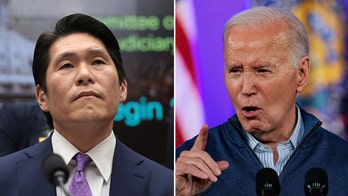
Sept. 9, 2013: Richard Trumka, American Federation of Labor and Congress of Industrial Organizations president, addresses members during the quadrennial AFL-CIO convention at Los Angeles Convention Center. (AP)
The Obama administration on Friday appeared to rule out giving unions a special deal to offer their workers extra ObamaCare subsidies, but left the door open to other changes after a private White House meeting with labor leaders who are concerned over the law.
Earlier in the day, AFL-CIO President Richard Trumka had urged the White House to act within a week to address labor unions’ concerns over ObamaCare.
The sit-down with President Obama and Vice President Joe Biden came amid concerns from Republicans that Obama might be preparing to offer the unions a special deal to assuage their concerns.
But on Friday night, the White House said the Treasury Department had issued a letter "making clear that it does not see a legal way for individuals in multi-employer group health plans to receive individual market tax credits as well as the favorable tax treatment associated with employer-provided health insurance at the same time."
However, the White House did not specify exactly what it might do instead, if anything. It said only it would work with various plans to create "new, high-quality, affordable options" for everyone.
Later, spokesmen for ranking House member Orrin Hatch of Utah and Ways and Means Chairman Dave Camp of Michigan issued a joint statement saying,“There has been far too much special treatment for politically-favored friends of ObamaCare. But when it comes to employers and taxpayers picking up the health care tab for labor unions – it appears that is a price that is simply too high.
"Perhaps even this Administration recognizes that there are limits to them stretching the law to reward their friends.”
The AFL-CIO just passed a resolution blasting ObamaCare as “highly disruptive,” and the administration has been trying to convince the unions to lower the volume on their complaints about the law’s implementation.
The Republican National Committee asked Friday whether the president would “cave” to the unions.
Trumka was coy after emerging from the meeting with Obama and Biden.
He called the meeting a "problem-solving session," but declined to specify exactly what type of fixes were discussed.
“We’re going to try to get it done in the next week,” he said. Asked if that meant a new regulation or Congress-approved law, he said: “A solution.”
The meeting comes days after the AFL-CIO approved a resolution warning the law would drive up the cost of union-sponsored health plans and encourage some employers to drop coverage.
Unions want members to be eligible for the same federal subsidies available to low-income workers in the new health exchanges. The White House has resisted that remedy, saying the law doesn't allow it.
Capitol Hill Republicans, though, are now pursuing legislation that would prevent the administration from offering extra subsidies to union workers.
Sen. John Thune, R-S.D., on Monday introduced the "Union Bailout Prevention Act," which would stop the granting of subsidies to offset premium costs for the multi-employer plans held by many union members. Separately, the House voted on Thursday to stop all subsidies until the administration launches a system to verify recipients are eligible.
Unions argue that workers without additional subsidies will switch to less-expensive, major-insurer plans, creating a withering effect on the so-called Taft-Hartley plans.
Thune and others argue the plans are already government-subsidized and the workers’ contributions are already tax-exempt.
“A deal such as this by the administration for the union would be illegal,” Utah Sen. Orrin Hatch and Michigan Rep. Dave Camp said in a letter Tuesday to the Treasury Department. “Giving union workers exchange subsidies in addition to the income-tax exclusion would be double dipping.”
The Associated Press contributed to this report




